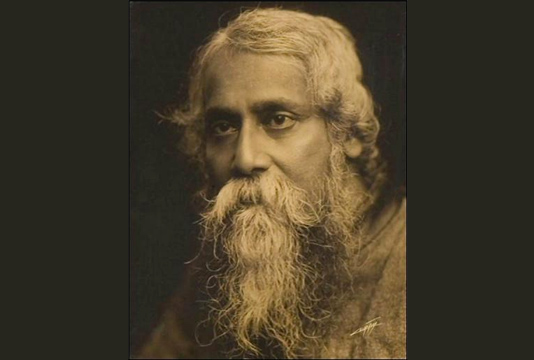DHAKA, May 5, 2019 (BSS) – The 158th birth anniversary of Bishwakabi
Rabindranath Tagore, who reshaped Bengali literature and music as well as
arts of Indian subcontinent with contextual modernism, will be celebrated
across the country in a befitting manner on Wednesday.
On the 25th of Baishakh in 1268 Bengali calendar, Rabindranath, the
fountainhead of Bengali wisdom, was born at Jorasanko in Kolkata.
Nobody had influenced the minds of so many Bengali-speaking people before
or after him. His influence has been compared, by many, to William
Shakespeare in the English-speaking world.
The government has taken an extensive programme to celebrate the birth
anniversary of the great poet at national level with the theme ‘Rabindranath
in Building a Humanitarian World’.
This year the main programme will be arranged on the premises of
Bangladesh Shilpakala Academy here.
Education Minister Dr Dipu Moni will join the inaugural ceremony in Jatiya
Natyashala auditorium of Shilpakala Academy at 3 pm on Wednesday.
Professor Emeritus of Dhaka University Bangla Department Anisuzzaman and
Rabindra Sangeet singer, writer and researcher Prof Sanjida Khatun will
attend the ceremony as special discussants.
Besides, a three-day exhibition on artworks of Rabindranath and cultural
functions will be held.
Apart from capital Dhaka, local administrations will arrange different
programmes at Shelaidah Kuthibarri in Kushtia, Shahjadpur in Sirajganj and
Patisar in Naogaon and Dakkhindihi and Pithavog in Khulna, the places where
Rabindranath had memoires, to celebrate the birth anniversary of the great
poet.
Marking the day, Rabindramela, discussions and cultural functions will also
be arranged.
Cultural Affairs Ministry and Bangla Academy will publish souvenirs and
posters on the occasion of the birth anniversary of Kabiguru.
All divisions, departments and institutions under the Culutral Affairs
Ministry and Bangla Academy will arrange special discussions and cultural
functions to mark the day.
All educational institutions across the country including in the capital
will arrange cultural functions, discussions, essay and poem recitation
competitions to celebrate the anniversary.
District administrations and Bangladesh missions abroad will also arranged
different programmes.
Bangladesh Television, Bangladesh Betar and private channels will broadcast
special programmes while newspapers will publish special supplements to mark
the day.
Security measures will be beeped up at the areas of national level
programmes and other programmes to avert any untoward incident.
The youngest of 13 surviving children, Tagore, nicknamed ‘Rabi’, was born
to a Brahmin family of Debendranath Tagore and Sarada Devi at Jorasanko in
Kolkata.
His novels, short stories, songs, dance-dramas, and essays spoke to topics
of nature, deep philosophical thought, love, politics and personal.
Gitanjali (Song Offerings), Gora (Fair-Faced) and Ghare-Baire (The Home
and the World) are his best-known works and his verse, short stories and
novels were acclaimed-or panned-for their lyricism, colloquialism, naturalism
and unnatural contemplation.
Author of Gitanjali, profoundly sensitive, fresh and beautiful verse,
Rabindranath became the first non-European to win the Nobel Prize in
Literature in 1913.
Sometimes referred to as “the Bard of Bengal”, Tagore’s poetic songs were
viewed as spiritual and mercurial.
His compositions were chosen by two nations as national anthems:
Bangladesh’s Amar Sonar Bangla and India’s Jana Gana Mana. The Sri Lankan
national anthem was inspired by his work.
The legendary poet breathed his last at his paternal residence in Kolkata
on Sraban (Bengali month) 22 of Bangla year 1348 (August 7, 1941).



